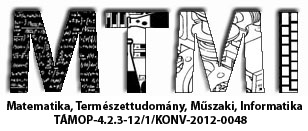Vascular risk factors in Undifferentiated Connective Tissue Disease
Előadás adatai
Introduction: The aim of the present study was to investigate the association between cardiovascular risk factors and plasma vitamin D levels in patients with Undifferentiated Connective Tissue Disease (UCTD) and to determinate which biomarkers are associated with atherosclerotic complications, such as cardiovascular disease (CVD).
Methods: 105 UCTD patients and 105 healthy age-and sex matched controls were enrolled in this study. Plasma 25(OH)D levels were analyzed by HPLC system. Anti-cardiolipin antibodies (anti-CL), anti-endothelial cell antibody (AECA), anti-ox LDL and endothelial cell markers, such as soluble thrombomodulin (sTM), von Willebrand factor antigen (vWFAg), and endothelin (ET-1) were assessed. Laboratory measurements (hs-CRP, total cholesterol, triglyceride were determined at the Department of Clinical Biochemistry and Molecular Pathology Laboratory of the University of Debrecen. The intima-media thickness (IMT) of the common carotid artery was determined by ultrasound.
Results: Cardiovascular events were more frequent in UCTD patients compared to controls (36 vs. 12 p< 0.001). Systolic blood pressure, total CE, TG, LDL levels, and hs-CRP, as well IMT values were higher in patients than in controls (IMT:UCTD: 0.64±0.12 mm vs. 0.56±0.07 mm; p<0.001), while the vitamin D levels were significantly lower compared to controls (p<0.002). Serum levels of autoantibodies (anti-CL IgG, AECA, and anti-oxLDL) were significantly higher in UCTD patients and differed between UCTD patients with and without CVD. Endothelial cell markers such as sTM (ng/ml:14.9±13.2 vs. 6.5±6.0, p<0.01), and ET-1 (fmol/ml: 1.46±0.85 vs. 0.81±0.75, p<0.015) were highest in UCTD with CVD than without or controls. There was a negative correlation between vitamin D deficiency and IMT values in UCTD patients (r=-484, p=0.01).
Conclusion: There are vascular abnormalities in the UCTD stage and the carotid intima-media thickness can be the earliest sign of vascular complications. Our data suggest that the presence of autoantibodies and inflammation, rather than the traditional vascular risk factors may provoke endothelial dysfunction and early vascular events in UCTD.
Támogatók: Támogatók: Az NTP-TDK-14-0007 számú, A Debreceni Egyetem ÁOK TDK tevékenység népszerűsítése helyi konferencia keretében, az NTP-TDK-14-0006 számú, A Debreceni Egyetem Népegészségügyi Karán folyó Tudományos Diákköri kutatások támogatása, NTP-HHTDK-15-0011-es A Debreceni Egyetem ÁOK TDK tevékenység népszerűsítése 2016. évi helyi konferencia keretében, valamint a NTP-HHTDK-15-0057-es számú, A Debreceni Egyetem Népegészségügyi Karán folyó Tudományos Diákköri kutatások támogatása című pályázatokhoz kapcsolódóan az Emberi Erőforrás Támogatáskezelő, az Emberi Erőforrások Minisztériuma, az Oktatáskutató és Fejlesztő Intézet és a Nemzeti Tehetség Program



